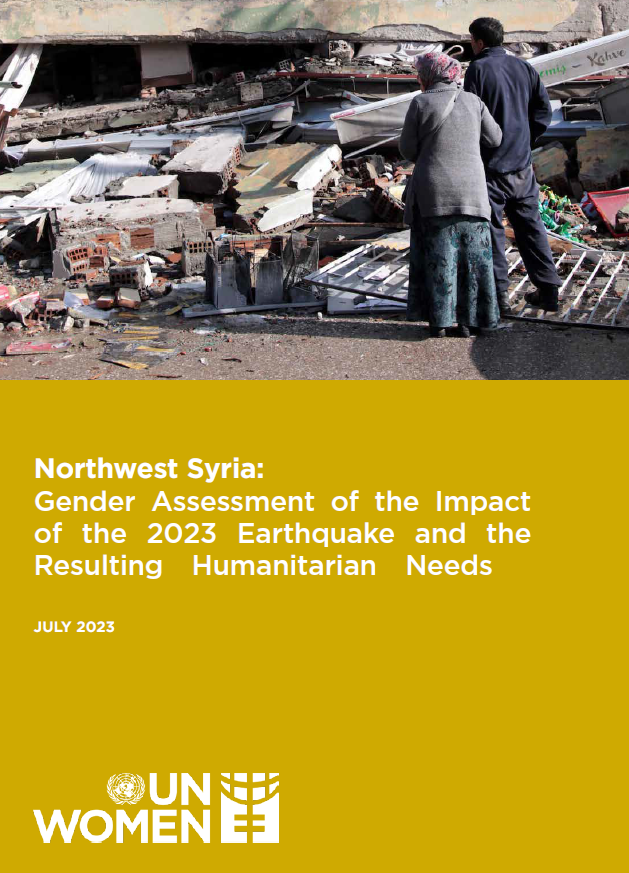
Northwest Syria: Gender Assessment of the Impact of the 2023 Earthquake and the Resulting Humanitarian Needs

A series of powerful earthquakes measuring 7.7 on the Richter scale struck southern Turkey and northern Syria on February 6th, resulting in widespread devastation. The epicenter was near the Turkey-Syria border, and the region has experienced over 1,206 aftershocks. The impact of the earthquake has been particularly severe in Aleppo, Hama, Idleb, and Lattakia Governorates, worsening the existing dire humanitarian situation. OCHA reports that 8.8 million people in Syria have been affected by the earthquake, amplifying challenges such as limited access to essential services and logistical constraints. Public services, including water, electricity, heating, and social services, are under immense strain.
The earthquake has disproportionately affected vulnerable groups, including women, children, older persons, and individuals with disabilities. In Northwest Syria alone, 4.5 million individuals have been impacted, alongside nearly four million people in government-controlled regions and over 260,000 people in certain parts of Northeast Syria. The destruction of homes and unsafe living conditions has led to additional displacement, hindering the safe return of internally displaced persons from the affected areas. Moreover, over 30,000 displacement movements have been recorded, underscoring the magnitude of the crisis and the urgent need for comprehensive humanitarian assistance.
To address the unique challenges faced by women and girls during disasters, UN Women has taken an active role in promoting gender equality and protecting their rights. UN Women's mission involves integrating the specific needs, rights, and perspectives of women and girls into all aspects of the response architecture. This includes ensuring equal access to basic services such as healthcare and education, as well as prioritizing their safety and protection. Additionally, UN Women works towards empowering women's leadership and enhancing their participation in decision-making processes related to humanitarian action. Recognizing the critical role of gender dynamics in disaster response, UN Women has led a comprehensive Gender Analysis to analyze the impact of the earthquake and the resulting humanitarian needs on women, girls, men, and boys in Northwest Syria. By acknowledging that individuals of different genders have distinct experiences, responsibilities, and priorities during disasters, this brief provides key insights into multisectoral gender needs and priorities. The brief offers overarching recommendations essential for formulating a gender-responsive and equitable humanitarian response to the earthquake.
Contact: Iris Sawalha, Regional Programme Management Specialist ([ Click to reveal ])